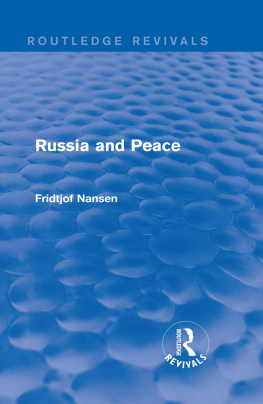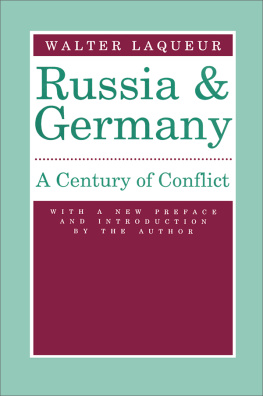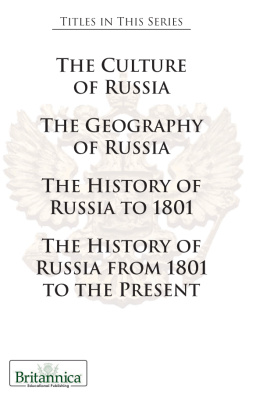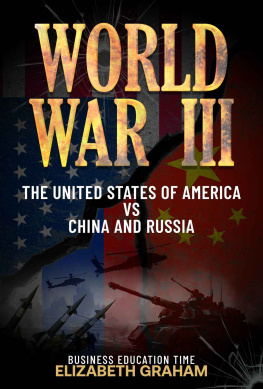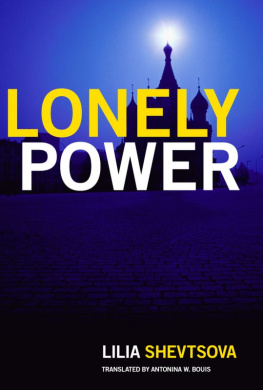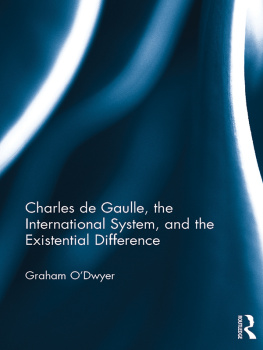Lonely Ideas
Lonely Ideas
Can Russia Compete?
Loren Graham
The MIT Press
Cambridge, Massachusetts
London, England
2013 Loren Graham
All rights reserved. No part of this book may be reproduced in any form by any electronic or mechanical means (including photocopying, recording, or information storage and retrieval) without permission in writing from the publisher.
Library of Congress Cataloging-in-Publication Data
Lonely ideas : can Russia compete? / Loren Graham.
p. cm.
Includes bibliographical references and index.
ISBN 978-0-262-01979-8 (hardcover : alk. paper)
ISBN 978-0-262-31739-9 (retail e-book)
1. Technological innovationsRussia (Federation) 2. Technology and stateRussia (Federation) 3. Research, IndustrialRussia (Federation) 4. Industrialization Russia (Federation) 5. High technology industriesRussia (Federation) I. Title.
T173.5.R9G73 2013
338.947dc23
2013009425
10 9 8 7 6 5 4 3 2 1
To Pat and Meg
in gratitude for love and help
Contents
Introduction
Russians, particularly in Soviet times, have often claimed that they invented many of the most important technologies of modern civilization: the steam engine, the lightbulb, the radio, the airplane, the transistor, the laser, the computer, and many other devices and machines. Western commentators have ridiculed these claims.
My recent research in Russian sources has revealed a big surprise. Russians did indeed build the first steam locomotive in continental Europe and the first operational diesel-powered locomotive in the world; they did first illuminate the avenues of major cities with electric lights; they did transmit radio waves before Guglielmo Marconi; they did build the first multiengine passenger planes (just a few years after the Wright brothers first flew); they did first create a new plant species through polyploidy speciation; they did pioneer in the development of transistors and diodes; they did publish the principles of lasers a generation before any others did; and they did build the first electronic computer in continental Europe. While the claims that they actually invented each of these devices are not correct, one thing remains clear: the Russians have absolutely legitimate claims to being pioneers in the development of all these technologies.
This recent research points to an important question, one impossible to ask without our new knowledge: if the Russians were pioneers in all these fields, why is Russia today so weak a player in world technology? The Russian economy is largely dependent on oil and gas; it is difficult to name a Russian high-technology manufacturer that is world class, with the possible exceptions of makers of weapons or space vehicles, and one or two software companies. Little Switzerland exports each year three or four times more high technology, measured in dollar value, than Russia. Hence the title of this book, Lonely Ideas. For three hundred years Russia has been adept in developing clever technical ideas and abysmal in benefiting from them. Lonely ideas, indeed.
Russians are a very creative people, as their achievements in music, literature, mathematics, and basic science richly demonstrate. In these fields Russians have deeply influenced the artistic and intellectual world. The educated public in America and other countries does not need to be told who Tchaikovsky, Tolstoy, or Dostoevsky were, and scientists and mathematicians similarly do not need reminding of the identities of Lobachevsky, Mendeleyev, Kolmogorov, or Landau.
However, Russians have been creative world leaders only in some areas of intellectual activity, not in all. Music, literature, mathematics, and some branches of basic science are largely creations of the mind, able to prosper as long as their practitioners are given good educations and the financial support necessary for them to work in their fields. Russians usually do well in such areas.
Technology, however, is a totally different subject; it is where the rubber meets the road, where intellectual creativity engages with society at large in a necessary and complex way, and where society can determine the success of technological projects, perhaps even unintentionally. The success of technology, which usually means profitability in a competitive international market, occurs outside the research laboratory, in the social and economic environment of the society as a whole. Russians have not done well in such activity. Where is the Russian Thomas Edison, Bill Gates, or Steve Jobs? Actually, they exist, but you have never heard of them because they fell flat on their faces when they tried to commercialize their inventions in Russia.
Walter Isaacson in his recent biography of Steve Jobs observes, In the annals of innovation new ideas are only part of the equation. Execution is just as important. Isaacson is correct, but his observation is incomplete, because he assumes a society where good execution by an individual can make the difference. In Russia even good execution was no guarantee of success because of the bad business environment.
A rich literature exists on the difference between innovation and invention, and that difference will help us understand the Russian problem with technology. If we define invention as merely the development of new devices or processes, then the Russians are good inventors. If we define innovation to include the acceptance and implementation of new ideas, then we must conclude that Russians are miserable innovators.
The person who develops an idea with commercial potential needs a variety of sustaining societal factors if he or she is to be successful. These factors are attitudinal, economic, legal, organizational, and political. Society needs to value inventiveness and practicality; the economic system needs to provide investment opportunities; the legal system must protect intellectual property and reward inventors; and the political system must not fear technological innovations or successful businesspeople but promote them. Stifling bureaucracies and corruption need to be restrained. Many people in Western societies and, increasingly, Asian ones take these requirements for granted. Just how difficult sometimes they are to fulfill is illustrated by Russian history and by Russia today.
The curve of development of technology in many Western nations is a gradually ascending one with some flattening out, relative to other rising nations in Asia and elsewhere, in recent decades; that of China is like a giant U describing excellence centuries ago followed by a period of retardation during the era of Western imperialism, which was succeeded more recently by a sharp rise again. Russias trajectory, on the other hand, for the past three hundred years has displayed an incredibly jagged line of peaks and valleys as excellence was followed by obsolescence, again and again. I refer to this spasmodic trajectory as Russian technologys pattern of fits and starts. Russian technology currently is experiencing a hiatus in its fitful course and has fallen back on natural resources for economic strength.
When was the last time you went into an electronics or consumer technology store, picked up a gadget or consumer product that you want, turned it over, and noticed on the back Made in Russia (Sdelano v. Rossii)? Almost never. But how many times have you listened to a magnificent piece of music or read a great novel and found that its creator was Russian? Rather frequently. And this difference is not a recent one; it stretches back centuries. In that sense, Russian technology is very different from other areas of Russian art and thought. This book is an attempt to explain that curious fact. It is based not only on a study of the relevant sources but also on long-term residence in Russia, visits to dozens of Russian universities, research institutes, and industrial establishments, and conversations with thousands of Russian scientists and engineers.
Next page

